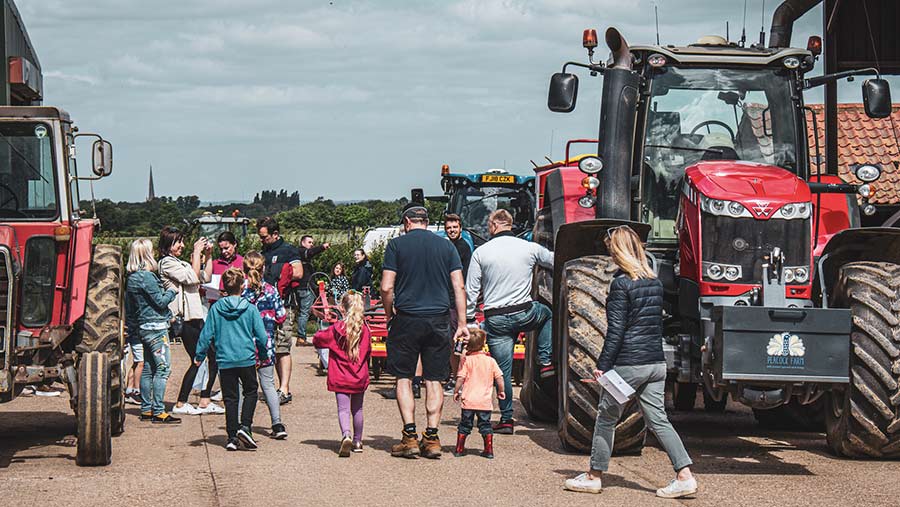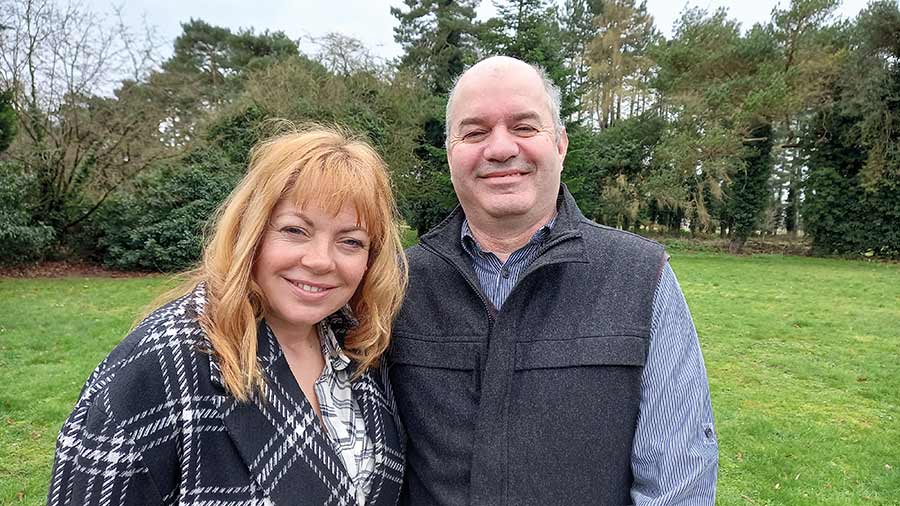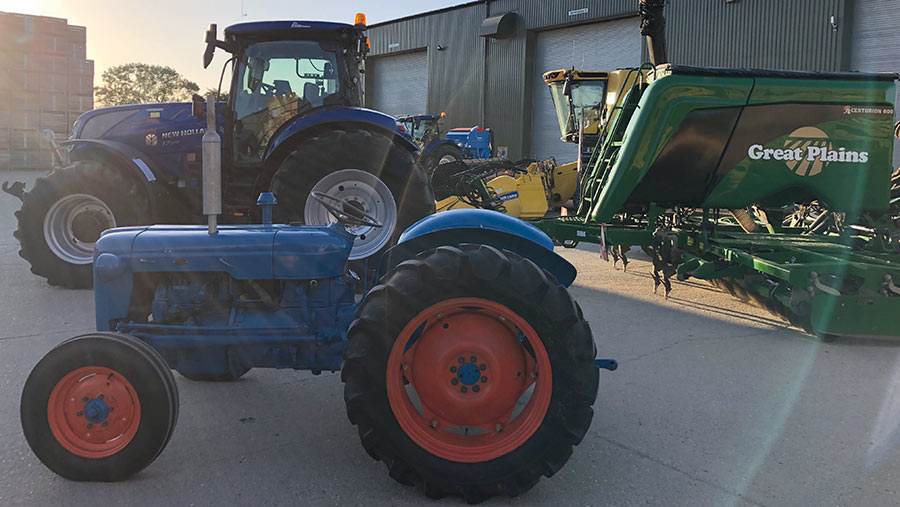How to run a successful Open Farm Sunday event
 © Leaf
© Leaf Since Open Farm Sunday started in 2006, more than 2,000 farmers have welcomed almost three million visitors onto their farms.
According to Linking Environment and Farming (Leaf), which runs the event, 96% of people who attended in 2022 said they felt more connected to farmers and what they do.
A significant 98% said they better understood what “sustainably produced” means, and 72% appreciated what farmers are doing to combat climate change.
See also: Holding an Open Farm Sunday event – your questions answered
Public support
Leaf Open Farm Sunday (OFS) manager Annabel Shackleton says:
“Leaf Open Farm Sunday is reaching new audiences, changing people’s attitudes to buying more British food, building community relations, and raising the profile of host farms and the whole farming industry.
“It’s our chance to showcase to the public the value of all the goods and services farming delivers.”
Most visitors are families with children aged four to 14 years. They come to learn about what farmers do, hear their stories and support British farming.
Leaf polling shows that the most popular topics are wildlife, biodiversity and farming for the environment, as well as animal welfare, machinery and how crops are grown.
“If you’re looking to host your first farm visit, keep it simple and small,” says Annabel.
“Use Leaf’s OFS free booking system to cap visitor numbers to how many people you want to welcome.
“Farming activities which are everyday to you are fascinating to visitors, so enjoy sharing what you do on your farm.”
Make it your own
Leaf says OFS is an unrivalled opportunity to show the public “real farming”.
“The beauty of OFS is that it is your event and has to be what you are happy to host,” says Annabel.
“Conversations can be about issues such as keeping dogs on leads, understanding the farming year, what public goods are and the need for supporting farming payments.
“For diversification businesses, you can use the day to research what customers want, build support for your plans and expand your customer database.”
Register for Open Farm Sunday
Leaf Open Farm Sunday takes place on Sunday 11 June 2023.
For more information, visit the OFS website, where you can register to gain access to free resources, support, ticketing pointers and national promotion.
Case studies
Leigh and Donya Donger, Muston, Leicestershire

Donya and Leigh Donger © Leaf
Arable farmers Leigh and Donya Donger farm 690ha of oilseed rape, beans, barley and wheat at Peacock Farm, near Muston in Leicestershire.
They are opening their farm again this year after the success of their first Open Farm Sunday event in 2022.
Donya has always felt passionate about sharing the farming story with children, speaking in schools, Women’s Institute groups and organising farm visits for the Scouts Association.
She persuaded her husband to expand the audience and showcase arable farming.
“We wanted to show people that there’s so much more than meets the eye with arable farming.
“Clarkson’s Farm has been good for illustrating this, and there’s so much to say about it. Farming is not just about animals.
“Visitors were really interested in finding out how and why we are doing what we do, why we can’t be price setters with commodities, why organic is not the answer for everything, and how we are farming with nature.
“We know our ‘back garden’ better than anyone. We’re seeking to enhance it and not destroy it, as is often suggested on TV and in the media.”
A machinery display – with combine, drill, cultivator and sprayer – and farm tours were popular and had huge Instagram-appeal.
A letter trail round the farm to create an anagram kept children active, and a straw bale next to a hay bale proved an effective way to explain the difference and what each is used for, as did a table display of seeds showing the crop they grow into and the food they make.
“We hired the district trailer from the NFU, which was inexpensive and was the most popular part of the day.
“Another tip is to invite local farmers to help – their knowledge makes all the difference to visitors’ experience.”
An agronomist explained the different inputs for each crop, and demonstrated how they used RTK and GPS to show the accuracy deployed to avoid unnecessary fertiliser, time or fuel use.
The farm sits in the Vale of Belvoir and is home to flora and birdlife. Donya, who has been a beekeeper for 10 years, is interested in how bees can enhance crop yields.
She invited the local beekeeping group, which brought along a live observation hive to explain the work of pollinators and other environmental impacts for insects.
The Donger family, who sell their own rapeseed oil, honey and fruit vinegars, also ran a coffee shop to help cover some of the event costs.
Paul and Jacqueline Wortley, Methwold, Norfolk

Jacqueline and Paul Wortley © Leaf
Paul and Jacqueline Wortley grow over 1,500ha of cereals and irrigated vegetables on their family farm in Methwold, Norfolk.
The couple will be hosting Open Farm Sunday (OFS) for a second time this June, following the success of their farm walks.
Having recognised the importance of enthusing about food and farming to the public, the Wortleys started with a small event last year.
They held two pre-booked farm walks – a child-friendly, two-mile walk in the morning, and a longer three- to four-mile “trek” for adults in the afternoon.
“We wanted to give a first-hand insight into what goes into producing food, the potential vulnerabilities, as well as what we are doing for the environment,” says Paul.
“As we all know, media stories can be misplaced or misinformed. This is about our food and our future.”
Using Leaf’s “square-metre” technique and a loaf of bread, Paul illustrated what inputs go in and what comes out of a patch of crop.
He explained energy production in a maize field and rounded off the walk among the trees – both newly planted and ancient – to talk about environmental stewardship.
“People are interested in different aspects.
“You’ll be speaking to a five-year-old about how the combine works and the next minute to their parents and grandparents about how it increases our on-farm productivity.”
Jacqueline says everyone, and especially children, learn by being involved and “doing”.
“It’s great to see the children running in fields, brushing their fingers against the crop, and getting excited seeing machinery up close.
“This is all part of building understanding and appreciation. They’re experiencing it.
“We also set up creative activities to make them think about what’s involved in growing food, so they take that away with them and perhaps think differently next time they pour milk onto their breakfast cereal.”
The Wortleys will be using the OFS free ticketing service this year to manage numbers.
Building on last year’s success, they will create different focus points for children and adults to enjoy in the farmyard, including old and modern machinery, craft activities such as Leaf’s clay farm pizza, and a “driver training area” with toy tractors gathered from extended family.

© Leaf
Last year’s visitors stayed longer enjoying the farm than anticipated, so this year’s visitors are encouraged to bring a picnic.
“It’s such a good opportunity to explain what we are doing and why, and if it makes a few more people think differently about the fields and food that they see every day, it’s a gain,” says Jacqueline.
